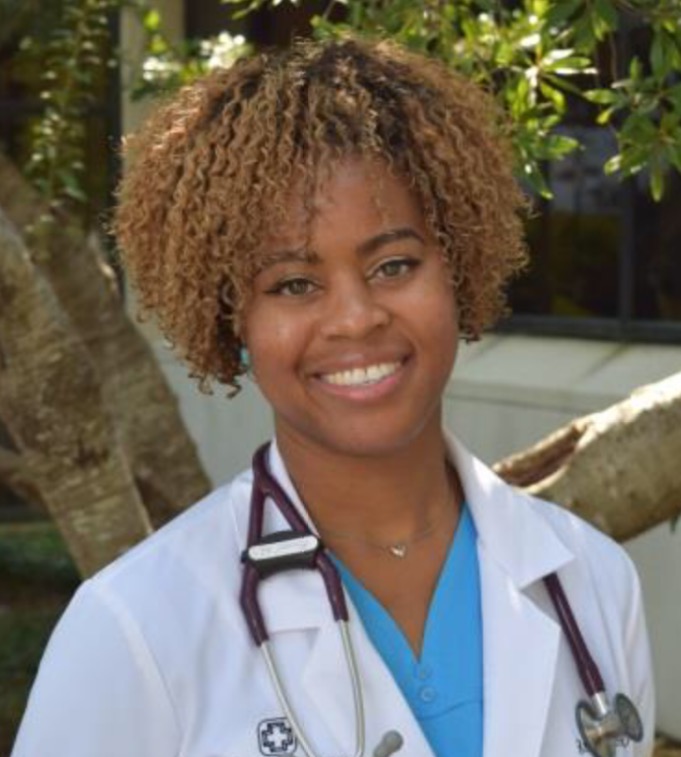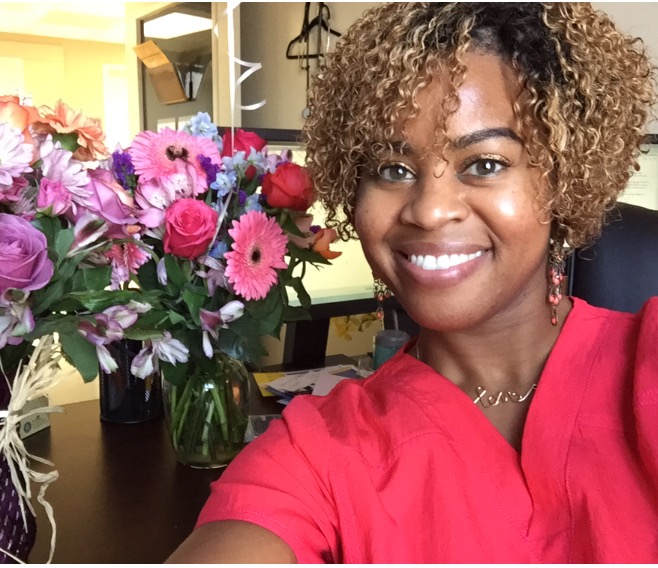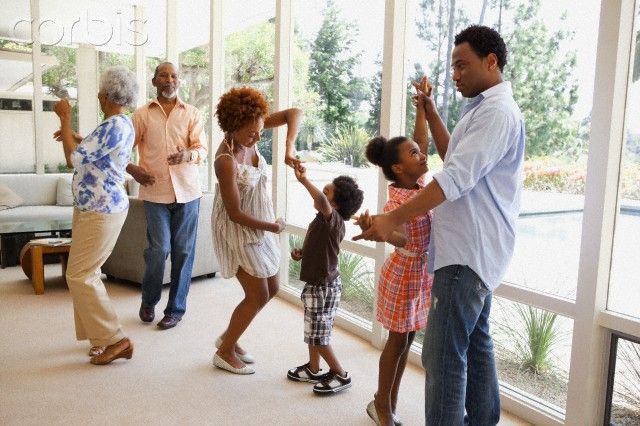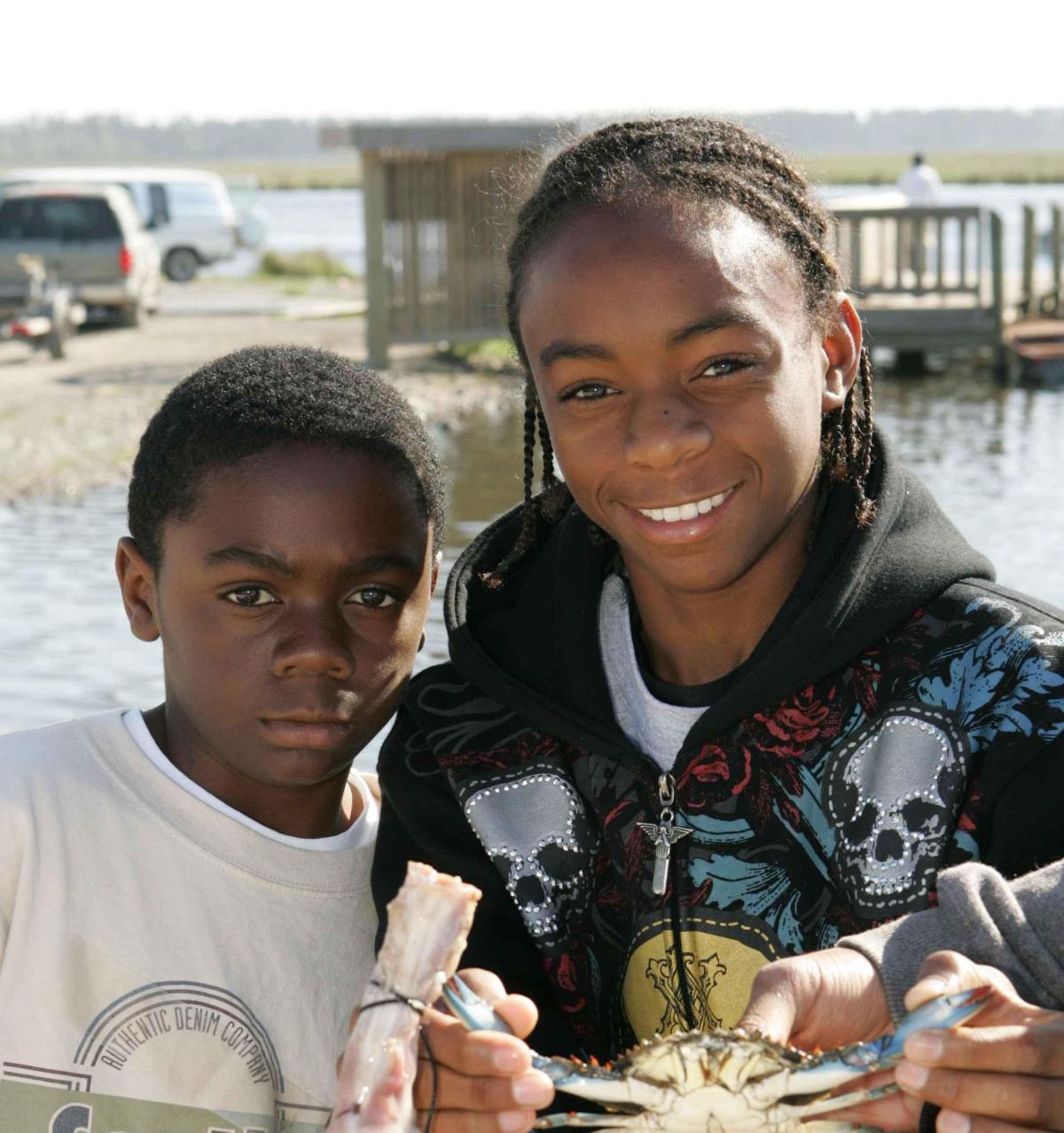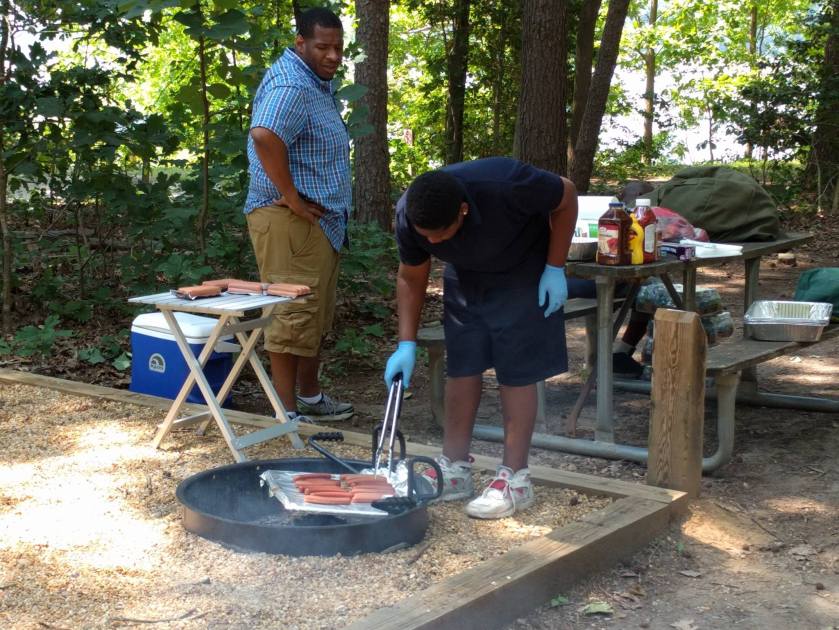In 2015, the National Home Education Research Institute estimated that 220,000 African American children are currently being homeschooled. In fact, our families are among one of the fastest growing demographics in the homeschooling community making up an estimated 10% of the homeschooling population. Research has demonstrated that our journey to homeschooling is unique. While many Caucasian families cite religious or moral reasons for their choice to home school, African American families often cite frustration with the traditional education system. This frustration stems from everything from a perceived culture of low expectations for our children to prejudice amongst their peers to the systemic exclusion of African American contribution to American history.
Whatever the motivations, homeschooling is yielding positive results. The National Home Education Research Institute reports, “[w]hile controlling for gender of student and family socioeconomic status, homeschooling students yielded 42 percentile points higher in reading, 26 percentile points higher in language skills, and 23 percentile points higher in math than if public schooled. This summer, the Bush family, a homeschooling family of eleven from Boca Raton, Florida made headlines for their incredible academic achievements which includes two teenagers with master’s degrees and a mom who is an architect and attorney. Stories like these are not uncommon but are these results typical? What does it mean to “homeschool” and is it a realistic goal for “the rest of us”?
I had the opportunity to chat with Kristina Brooke Daniele, extraordinary homeschooling mom and creator of For Love of Education, a blog chronicling her and her family’s homeschooling journey. She shared her journey to homeschooling and valuable lessons she has learned along the way.

Q. For those that don’t know, tell us a little about homeschooling. What is it?
[F]or my family, homeschooling is what feels like the most natural way to educate our child in a holistic way. We focus on skills-based learning and mastery and then utilize that in a way that is reflective of living an actual life. With homeschooling, learning happens beyond the “classroom” through a more hands-on approach. It’s both academic and play. It is not structured. It is child-led.
Q. What made you decide to homeschool your child?
Honestly, it’s something that I knew that I wanted to do because my educational background was so diverse and untraditional. My mom focused on educating me at home even when she enrolled me in school. I always had access to advanced materials in a variety of subjects. We went to museums and cultural events and traveled a lot. I was never happier than when I was learning on my own, immersed in my environment. In 7th Grade, my mom enrolled me at Columbia Prep, a private and academically vigorous school on the Upper West Side in Manhattan. There, [my] teachers challenged me academically, and as I moved to the high school, I was given more freedom over my academic choices. I still hated going to class, but I enjoyed the control. In college, I did best in the courses that did not require me to go to class but rather allowed self-directed learning. Many of my courses were independent classes that were designed based on my interests.
In 2004, I became a high school English teacher and received a first-hand look at what the public school system in New York had to offer. [I found] there are limited chances for children to learn from each other and few opportunities for the inclusion of things in which children are actually interested. Schools created a dangerous social hierarchy of group thought and didn’t respect individuality or creative expression. Teachers are tired, underpaid, overly stressed, and scapegoats.
So, when it came to my daughter, I wanted to give her the kind of education that I wanted for myself, and even more so I wanted to provide her with a flexible option that could change as her needs, wants, and interests evolved. At two, she was already inquisitive, and I did not want to hinder her love of learning.
I wanted to give my daughter the kind of education that I wanted for myself, and even more so I wanted to provide her with a flexible option that could change as her needs, wants, and interests evolved. At two, she was already inquisitive, and I did not want to hinder her love of learning.
Q. What steps did you have to take to homeschool your child? Certifications? Curriculum planning? State requirements? Annual Cost?
We began homeschooling in New York. New York requires a lot of paperwork, and it differs by county. You must register your child for school at five. We had to submit an Intent to Homeschool and an Individualized Education Plan. Ironically, the IEP is more than I ever had with my high school students because there was no actual curriculum when I began teaching. You must also have your children tested in accordance with state rules.
We moved to Arizona and things are much different here. First, you can delay formal education until the age of eight (which we opted to do based on much research). Once you decide to homeschool, you file a Letter of Intent with the county, and that is it! No seriously, Arizona is a homeschooling-friendly state and not only do they make it a bit easier, but they also provide homeschoolers with many resources.
Ah, curricula? Honestly, I am a bit of a curricula hoarder! I have TONS of material on my computer, in four-inch to six -inch ring binders, in folders, on bookshelves. Everywhere. I research a lot. I spend a lot of time finding things that interest my daughter and incorporating them into how we learn.
[As far as cost], some years I spend more than others. You can do a lot for free. The key is to research, join groups either online or offline, and be open to change.
Q. Is homeschooling largely autonomous or do you have to follow a specific structure as mandated by the state?
In Arizona, it is autonomous. It can be in New York, too, but you must adhere to the state/county standards. Check with your state to find out the regulations so that you avoid any issues. While we have pretty much free rein in Arizona to educate the way that we see fit, I need a guide to ensure that I am working towards a finish line. I use New York’s state standards still because they are a bit more challenging than Arizona’s standards. That is my start point. My daughter is ten. I print off the standards for middle school and use that to guide us in determining what we will be learning. I do not care about grade per se because they are not organic. My daughter reads on a tenth grade level, but her reading comprehension level is on a lower level. However, she is on grade level (fifth) for math. So using grade standards would not help. I just ask, “what does she need to know by the end of middle school?” [Then], I plan accordingly.

Q. For many, when you picture homeschooling, you conjure up an old fashioned image of a stay-at-home mom raising her children in a rural, religious environment isolated from the modern world. How would you dispel those myths? How do you keep your child socially engaged?
There is nothing wrong with the traditional, religious method of homeschooling if that is what one chooses to do. That is how many of our grandparents and great-grandparents were educated. Those who associate homeschooling with fundamentalist ideologies and extreme forms of punishment haven’t been paying attention and are willfully ignorant about what homeschooling is in reality. Much of that can be accredited to what is often portrayed in movies or on thoughtless TV shows. That is not homeschooling but rather neglect and abuse. They are not synonymous, and they are not mutually exclusive. It happens in both homeschools and institutional schools.
In truth, there is a grave misunderstanding about what it means to be socialized. Socialization refers to being immersed in one’s culture. It is about exposure to the different aspects of society. So I ask you, how does that happen while children sit in a classroom for six to eight hours a day? When do they play? Think about life? Wonder at the mysteries of the sky or play in the dirt? When do those children get to meet the Lyft driver from Japan who has been here for two years and is excited that your child is learning his language and tries to teach her as much as he can in a ten minute ride? When do those children get to attend a First American drum circle? Or ride the subway and wonder how fast they are going or how trains work? When do they get to talk to the conductor? When do they go to a restaurant and listen to a story about living in a concentration camp from a senior woman who just wants to talk? When do they go to a museum and attempt to recreate a Van Gough as they sit next to an out of work artist who explains each brushstroke? When do they attend or perform in a dinner theater performance?
Many children in traditional schools are not socially engaged. They are hiding, coasting, and out of fear, conforming. Put them in a setting outside of school, and many of them struggle to hold conversations with people outside of their age group or immediate social group. They find it difficult to make friends, or to ask questions, or to make decisions because at school those things have been structured for them. At this point, I need proof that school is the best place for children. Period.
Q. Are you able to work?
I work more now than I did as a teacher. I have two jobs and up until very recently, I was also running a business. I am lucky (or crazy) because I work from home. It’s hard and exhausting, but I am getting the hang of it thanks to several planners and insomnia.
On another note, you do need to ensure that your lifestyle will work for homeschooling and that you are willing to make changes as needed. If you have to work outside the home, then you need to have a plan in place. If your child is a “spirited child” as is my daughter, you need to have some behavior strategies in place. If you work from home, you need a clear division of time and space.
Q. I know you have experience as an educator. I would imagine a deterrent for many parents considering homeschooling is that they don’t have experience as an educator or perhaps they don’t even have the credentials of a traditional educator (e.g., a Bachelors and/or Masters degree). Do you think this is a reasonable barrier? Do you think someone without a background in education or advanced degrees can be a successful homeschooler? What qualities do you think make for a successful homeschooler?
While I have a Bachelor of Science in English and a Master of Science in Teaching Adolescence Education Grades 7-12, you do not need a degree to homeschool. Think of it this way, if you don’t have faith in your ability to research or relearn concepts after your elementary school education, then why would you trust the system that educated you to educate your child? With that said, what you need is patience (which I promise you will develop over time), a library card, personal homeschooling goals, the ability to research, two or three homeschooling families that you can speak to and maybe get together with, and determination. Respect the process of learning and trust that you know what is best for your child. Allow you child to speak his/her truth and be prepared to revamp when things don’t work.
You do not need a degree to homeschool. Think of it this way, if you don’t have faith in your ability to research or relearn concepts after your elementary school education, then why would you trust the system that educated you to educate your child? With that said, what you need is patience (which I promise you will develop over time), a library card, personal homeschooling goals, the ability to research, two or three homeschooling families that you can speak to and maybe get together with, and determination.
Q. What criteria would you use in determining whether your child is a good candidate for homeschooling?
[H]omeschooling is only as good as the parent. Children are flexible. Most children do well in homeschooling because individualized learning takes into account their strengths and weaknesses. Have a plan for what you are doing (not a lesson but just a general idea of what you are trying to accomplish). As long as they are engaged, they are learning. I think there is a method for every child as long as you are willing to look for it. You have to pay attention to your child. It’s important that you know your child’s learning style. Take a parenting course or read some books about different learning styles and teaching methods.
Q. If you can, can you speak to addressing the needs of multiple children? How have you seen homeschoolers manage the needs of many children of different ages?
While this is not something I struggle with (the joys of an only child), I am in a homeschooling group with several large families. The older children help teach, the younger ones, and I’ve seen it help. Also, young children learn a lot from just being around others who are learning. Even with an only child, I can tell you that it is important to have a system set up that is conducive to your family. Trial and error is the only way!
Q. Have you encountered any obstacles or setbacks? How did you overcome?
When I left teaching, we took a rather large pay cut and trying to survive on one income was hard in New York. It’s why we moved to Arizona, but things were just as hard out here. We almost put her in school while I worked to get my business off the ground and my husband looked for a job that wouldn’t suck his soul out through a straw! Money issues are the hardest, and they trickle down into the actual fabric of the marriage, so my husband and I were fighting a lot.
Then, of course, there are issues with balance, hormones, self-doubt, and lessons, curricula, and projects that completely bomb. Academically, my worst mistake was with math. I shied away from it because it wasn’t my strongest subject, but I relearned as I was teaching. We developed a strong skills set together. I realized that my worry slowed her down. I thought that I needed to drill math facts, but this year I made the decision to push her to her grade level and we have been VERY successful!
I’m not the best at handling my stress, but we roll with everything. My daughter knows that we are real people who problem solve, negotiate, and restructure for the best possible outcome. We talk honestly about what is going on. We create a safe space for our daughter, and she shares how she feels about what is happening.
Homeschooling is becoming more popular, but don’t do it just because you have heard a lot about it. It is hard and stressful and requires a lot of trial and error. You have to be ready to let go of all notions of “school” and focus on learning. They are very different. If you do decide to homeschool, be kind to yourself. It takes a little time to find your groove!
Q. Can you recommend any organizations for support or resources?
I don’t join homeschooling organizations because most homeschooling organizations are religious, and I am not. Look for local homeschooling groups. Meet with them and find one that suits your needs.
Here are some helpful places:
Websites:
Magazine(s):
Books(s):
Q. Any last words of advice to those considering taking this journey?
Honestly, homeschooling is becoming more popular but don’t do it just because you have heard a lot about it. It is hard and stressful and requires a lot of trial and error. You have to be ready to let go of all notions of “school” and focus on learning. They are very different. If you do decide to homeschool, be kind to yourself. It takes a little time to find your groove!
Find out more about Kristina Brooke Daniele and her family’s journey at http://forloveofeducation.com.
***
About The Author
Faye McCray is an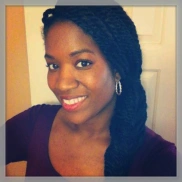 attorney by day and writer all the time. Her work has been featured on My Brown Baby, AfroPunk, AfroNews, For Harriet, Madame Noire, Black Girl Nerds, Black and Married with Kids, and other popular publications. Faye also has a number of short stories and a full length novel available for purchase on Amazon. Most importantly, Faye is a proud wife and mother to three beautiful and talented young boys who she is fiercely passionate about raising. You can find Faye on Twitter @fayewrites and on the web at fayemccray.com.
attorney by day and writer all the time. Her work has been featured on My Brown Baby, AfroPunk, AfroNews, For Harriet, Madame Noire, Black Girl Nerds, Black and Married with Kids, and other popular publications. Faye also has a number of short stories and a full length novel available for purchase on Amazon. Most importantly, Faye is a proud wife and mother to three beautiful and talented young boys who she is fiercely passionate about raising. You can find Faye on Twitter @fayewrites and on the web at fayemccray.com.

 attorney by day and writer all the time. Her work has been featured on My Brown Baby, AfroPunk, AfroNews, For Harriet, Madame Noire, Black Girl Nerds, Black and Married with Kids, and other popular publications. Faye also has a number of short stories and a full length novel available for purchase on Amazon. Most importantly, Faye is a proud wife and mother to three beautiful and talented young boys who she is fiercely passionate about raising. You can find Faye on Twitter @fayewrites and on the web at fayemccray.com.
attorney by day and writer all the time. Her work has been featured on My Brown Baby, AfroPunk, AfroNews, For Harriet, Madame Noire, Black Girl Nerds, Black and Married with Kids, and other popular publications. Faye also has a number of short stories and a full length novel available for purchase on Amazon. Most importantly, Faye is a proud wife and mother to three beautiful and talented young boys who she is fiercely passionate about raising. You can find Faye on Twitter @fayewrites and on the web at fayemccray.com.





